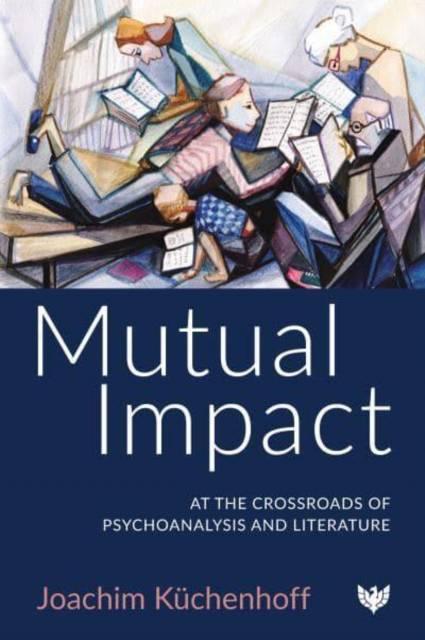
- Retrait gratuit dans votre magasin Club
- 7.000.000 titres dans notre catalogue
- Payer en toute sécurité
- Toujours un magasin près de chez vous
- Retrait gratuit dans votre magasin Club
- 7.000.0000 titres dans notre catalogue
- Payer en toute sécurité
- Toujours un magasin près de chez vous
Mutual Impact
At the Crossroads of Psychoanalysis and Literature
Joachim Kuchenhoff
Livre broché | Anglais
44,95 €
+ 89 points
Description
What can psychoanalysis contribute to the interpretation and understanding of cultural products, in particular, literary works? What, on the other hand, can novels and plays offer to widen the conceptual and theoretical perspectives in psychology and psychoanalysis? The interpretative strategies offered by psychoanalysis, often unfamiliar to cultural studies, can adorn literature with new meaning. Psychoanalysis enables the perspective of unconscious motivations of social action and thought and widens semiotic strategies to understand linguistic, and even infra-linguistic, signs. Conversely, psychoanalytic thinking has since its advent greatly profited from literature and literary criticism. From Freud onwards, psychoanalytic theory has integrated poetic knowledge or transformed epistemological and interpretative concepts of cultural studies into psychoanalysis. Nine chapters each cover a famous work of literature from the likes of William Shakespeare and Herman Melville. Joachim Kuchenhoff interprets each work from a psychoanalytic perspective while simultaneously combing its content for lessons which can be drawn and utilised in psychoanalytic practice, thereby eliciting the symbiotic relationship between the two fields. Covering topics ranging from the tolerance for loss and the negative in King Lear to the difficulties in mourning and beginning anew in Nathan Hill's The Nix, this intriguing work is a must-read for all those with an interest in literature, as well as those in the psychoanalytic field who wish to expand their knowledge base and adopt new and different ways of thinking.
Spécifications
Parties prenantes
- Auteur(s) :
- Editeur:
Contenu
- Nombre de pages :
- 200
- Langue:
- Anglais
Caractéristiques
- EAN:
- 9781800131682
- Date de parution :
- 27-06-23
- Format:
- Livre broché
- Format numérique:
- Trade paperback (VS)
- Dimensions :
- 150 mm x 229 mm
- Poids :
- 2485 g

Les avis
Nous publions uniquement les avis qui respectent les conditions requises. Consultez nos conditions pour les avis.






